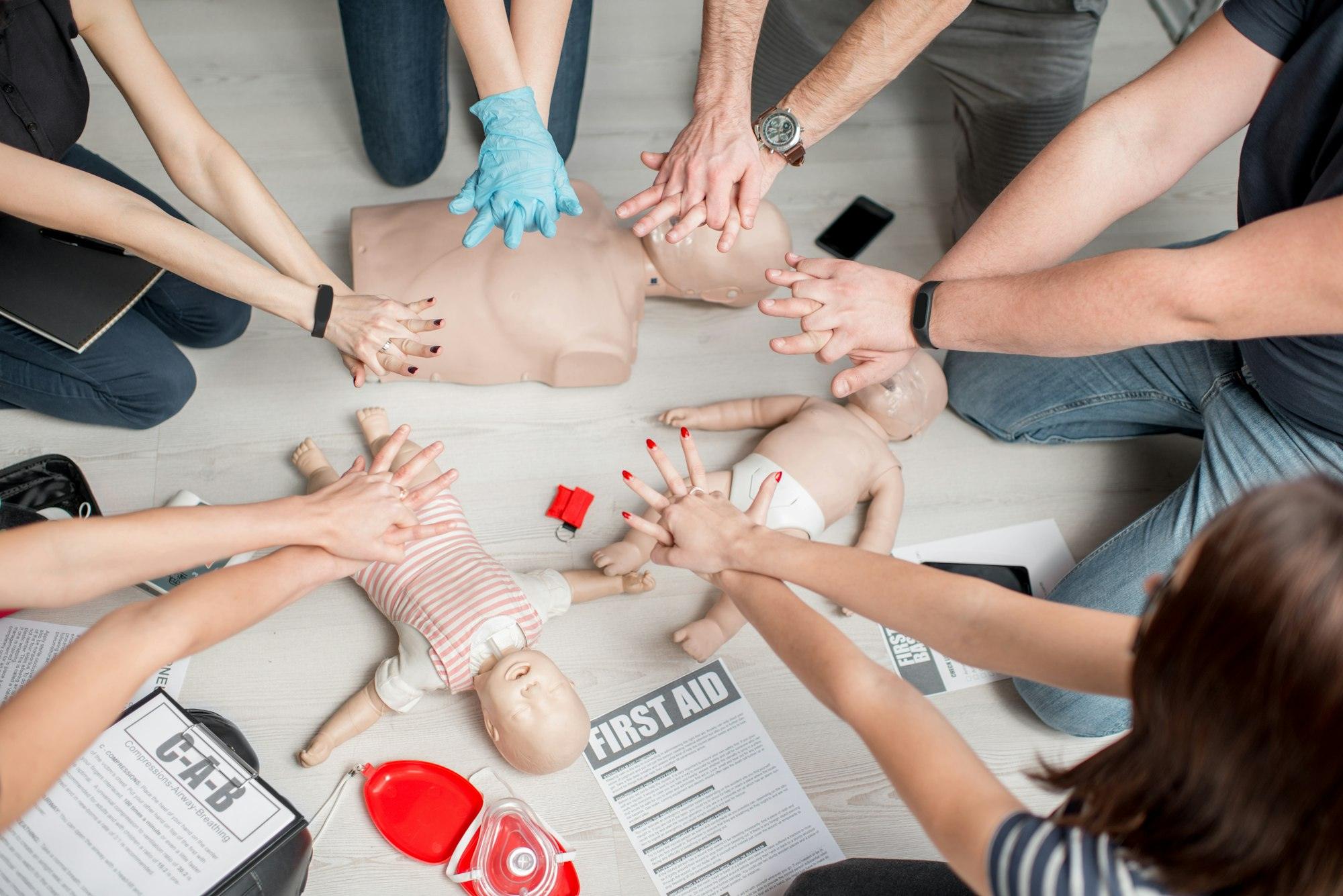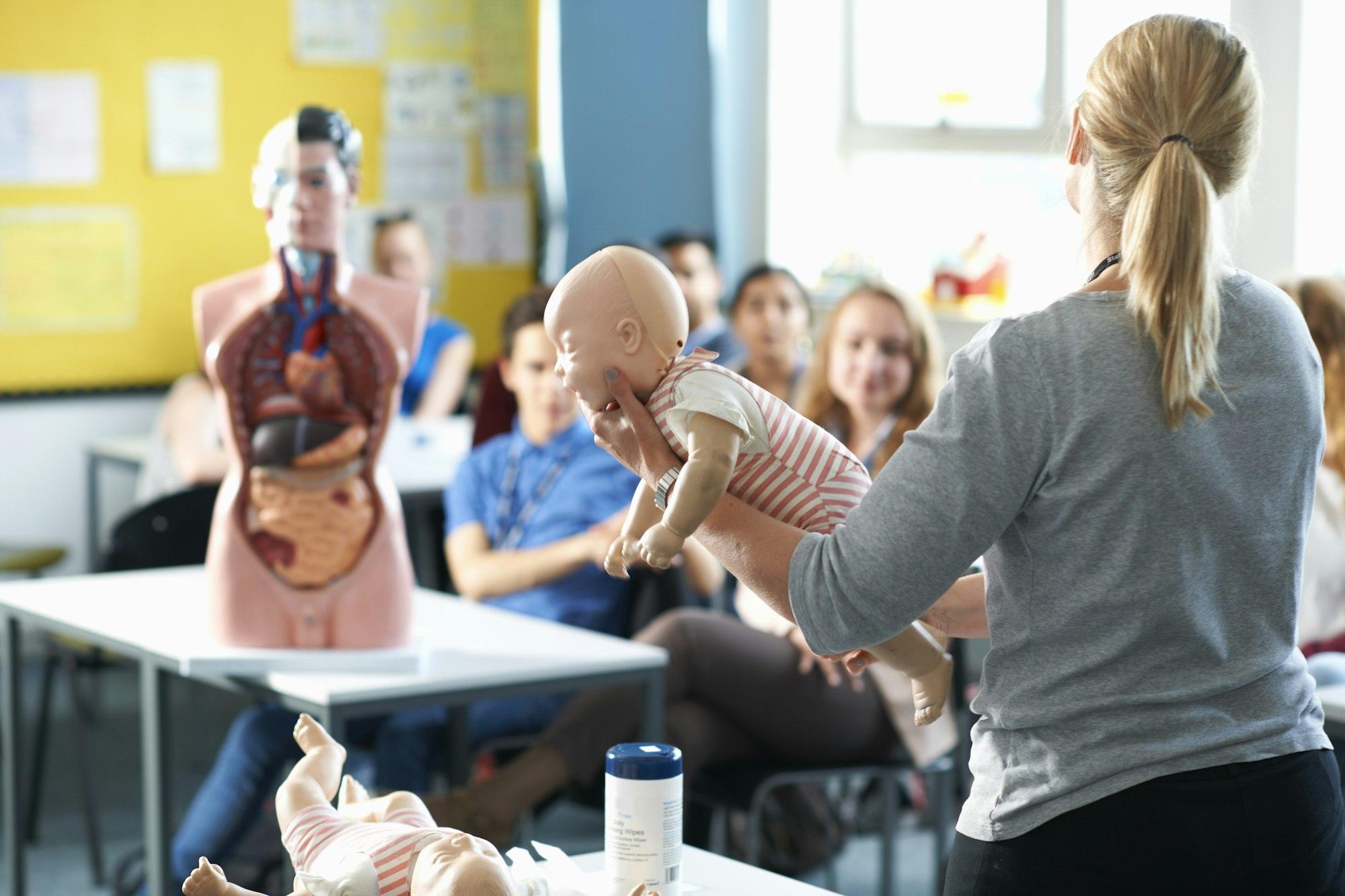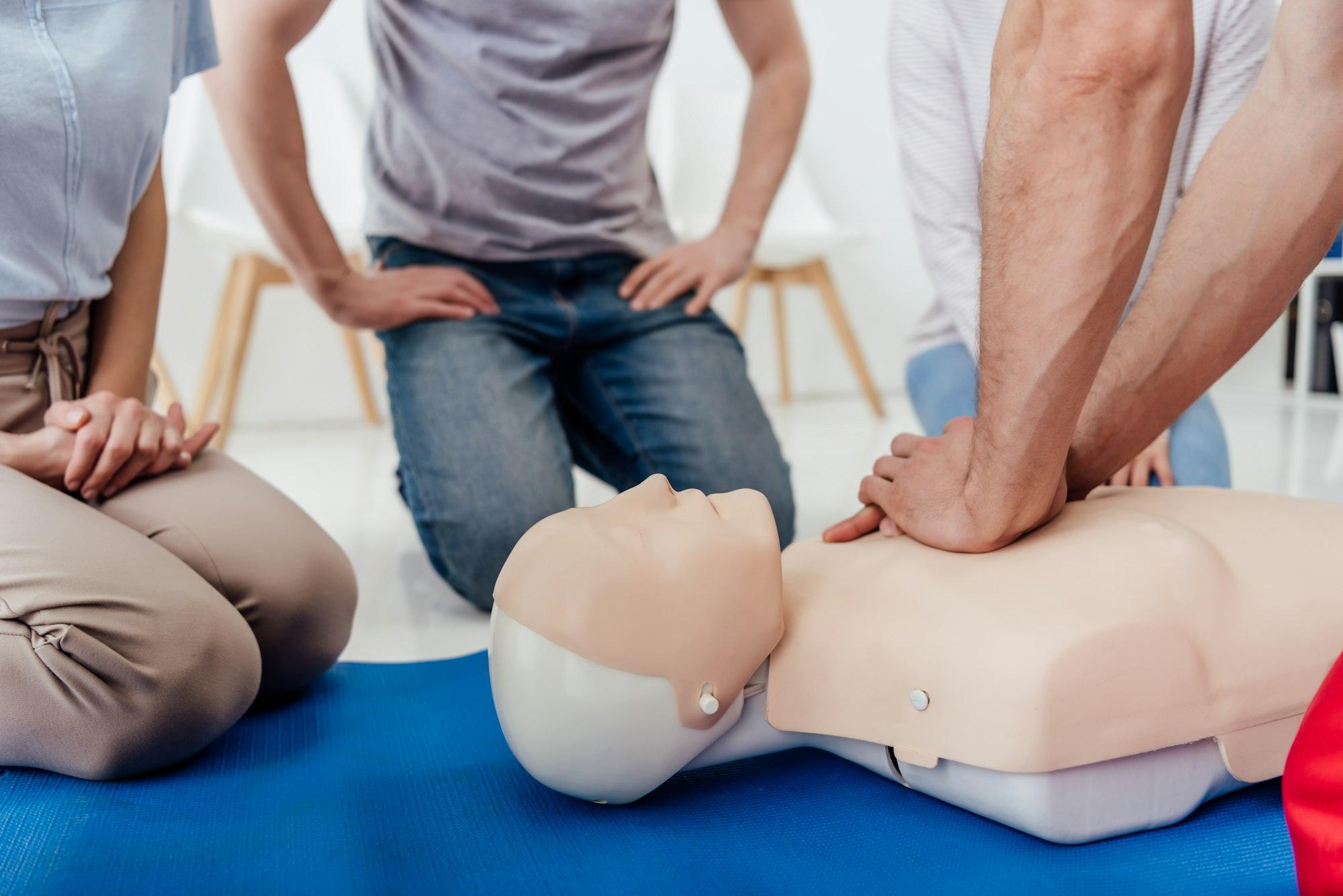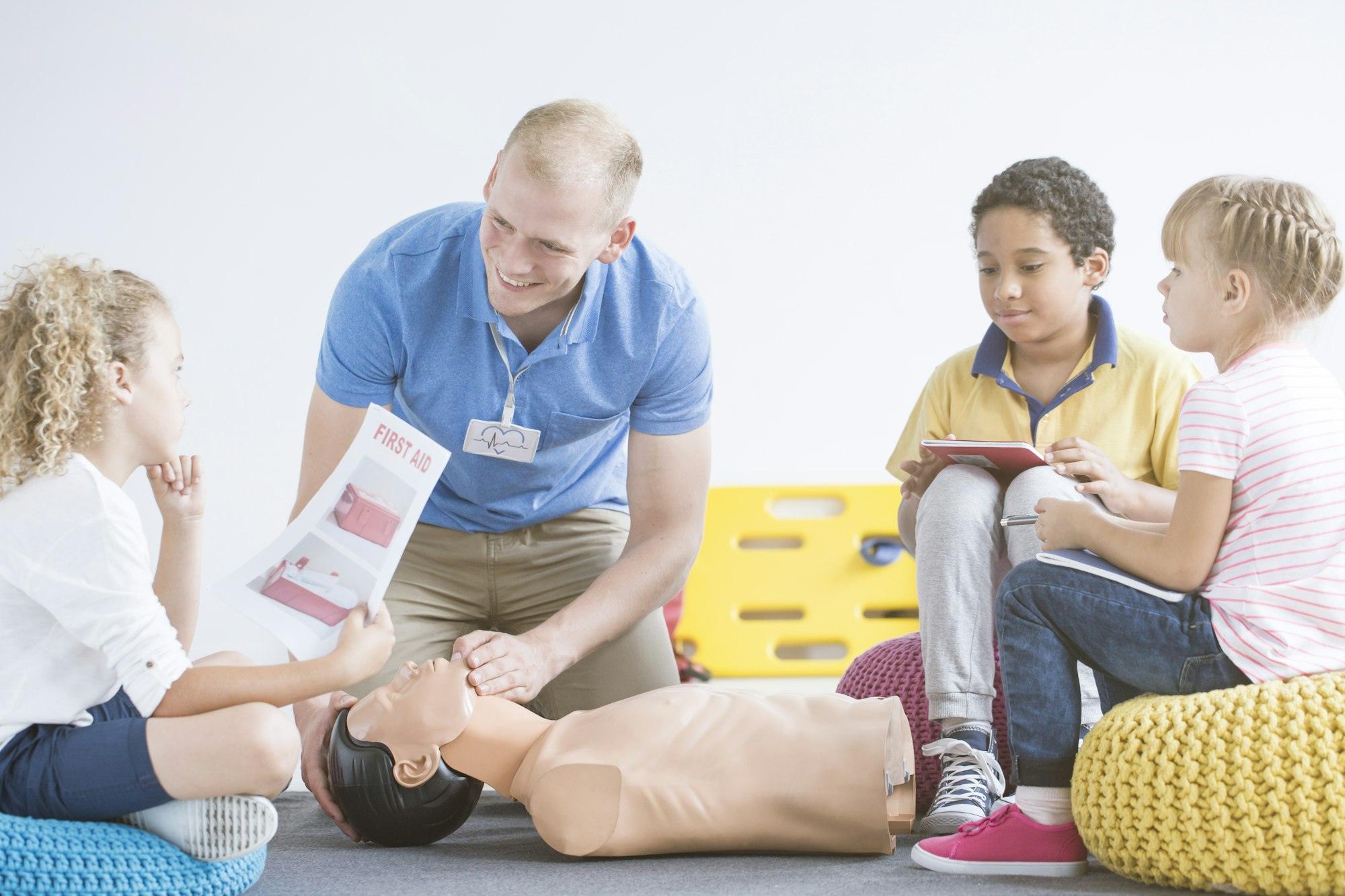First Aid Mental Health Course – Bipolar is associated and influenced by daily demands, stress can trigger bipolar to peak.
This manic side of bipolar is triggered by pressure and the reaction to stressful daily demands or events. The depressive episodes can be brought on by relationship problems and financial pressures of problems. It is thought to believe that the manic episodes are an escape from the feelings of depression. Bipolar is associated and influenced by daily demands, stress can trigger bipolar to peak.
Examples of symptoms that may occur in a manic and depressive episode.
Manic
As previously discussed, manic will show signs that the individual is very active and feeling very high and creativity, and euphoria are common.
People suffering a manic episode will often talk more than usual with an increased speak in their speech. Symptoms of sleep deprivation are often experienced due to high energy and hyperactive. Manic episodes may also make the individual feel like they’re invincible or untouchable. This could be a dangerous episode as the individual also can be easily distracted from their daily routes or work activities.
Although this episode of mania makes the individual feel on a high it often tends to spiral out of control. This can make the person behave recklessly during a manic episode. First Aid Mental Health
And can lead to excessive gambling, engaging in inappropriate sexual activity, or making foolish business investments or decisions – for example, they may become angry, irritable, and aggressive- often leading to confrontation when others don’t agree with their plans and retaliating to anyone who challenges their behaviour. 
Some people even become delusional, hallucinate or start hearing voices.
First Aid Mental Health Course. Depressive symptoms
Depressive symptoms will affect individuals in a variety of ways and a mixture of different symptoms and range from mild to severe
The more common symptoms of a person with depressive could be:
Feeling unhappy, worthless and empty. This can cause many physical affects for the person such as sleep problems, eating disorders low or no sex drive and show signs of anxiet.
Concentration levels and memory problems are very common with the individual not motivated in day to day life. This can make feelings of worthlessness or guilt. With more severe symptoms the person can also have thoughts of self-harm or even suicide
What are medical intervention for Bipolar Disorder?
Medical intervention for an individual who is suffering from bipolar disorder could include:
Medication can be prescribed by the individual’s GP who’s suffering from the condition. Common drugs that are be subscribed can include, Anti-anxiety drugs, Antidepressants, Antipsychotics and Anticonvulsants
Drugs cannot cure Bipolar Disorder, but it can help to control it.
An individual could be admitted to hospital if they are very distressed, this will allow for an assessment and provide relief for anyone supporting the individual with depression. The individual can volunteer to go or can be sectioned under the Mental Health Act 1983.
Electroconvulsive Therapy is given under general anaesthetic and involved passing current through the brain in order to cause a fit. It is given for cases of severe depression, it is not commonly used as much now but can be an effective treatment.
What are the different ways in which an individual with Bipolar Disorder can help to manage their illness when entering a manic and depressive episode?
An individual with Bipolar Disorder can man manage their own illness in a number of different ways
They can seek and ask for support from other people suffering with bipolar, it can reassure them they are not alone and talk about their feeling of compassion with others. Monitoring episodes and detecting worrying signs as early as possible can mean the individual is prepared.
They can avoid triggers which have set off the illness in the past, and avoid stress where possible. Also, having a daily / regular routine will keep the person in high moral and keep the mind relaxed and focused.
It would be wise to avoid stimulant drinks, alcohol and recreational drugs such as smoking cannabis or taking cocaine as this can trigger manic episodes.
First Aid Mental Health Course
A change in general lifestyles can also help manage the disorder, such as, taking regular exercise to keep a positive mind. This can also be combined with a healthy diet and a good sleep pattern
Also, they should try and keep depression at bay by challenging negative thoughts and adopting a positive attitude where possible.
How can others help an individual with Bipolar Disorder to manage their illness?
Bipolar Disorder can be either mild or severe and there are many different ways in which friends, family and others can help a person manage their illness. Some common ways are;
By family and friends can educating themselves on the condition and its triggers, also how it affects the individual to be able to notice the warning signs. This can be a great way to communicate with the person and help them set daily routine tasks. This can also include helping them find appropriate support groups and the expert help that is available to them.
People can be supportive and try and understand the individual’s illness so that the person with bipolar can open up about their feelings without the worry of being judged.
They can encourage the individual to seek help and intervention to control illness. They can help an individual with certain jobs and roles to reduce the pressure at times.
Give the person some practical and motivational support – this could be things like encouraging them or even take part with them in regular exercise, help set daily goals with them including a healthy diet and sleep pattern
First Aid Mental Health Course
Try to be patient with the person suffering with bipolar and try to understand and respect their decision-making, but also monitor the person’s behaviour and contact support lines if the person is feeling very low and thinking self-harm thoughts or suicide thoughts.
What local resources and treatments are available to an individual experiencing Bipolar Disorder?
Care programme
This resource is where the person can have their needs assessed, and their care planned, a thorough assessment will be completed, and an action plan put in place. As with all mental health conditions the community mental health team (CMHT) maybe involved in this process, they can work with the individual to sort out any issues such as housing, benefits and day centres.
Local day centres
There are many different day centres which included, local community centres, day hospitals and drop in centres to support people with bipolar disorder illness. These types of centres can provide some excellent help and support such as therapy, counselling and further information advice and guidance on other support available. First Aid Mental Health This type of service is provided by professional mental health experts.
Other types of drop in services may offer a different range of support, for example mindfulness activities such as arts and crafts, music lessons or even just to pop in for a chat with other people in the centre
First Aid Mental Health Course
Treatments 
Local treatments could include supported accommodation. This would entail the individual suffering with bipolar lives in a supported environment until they have the confidence to live on their own, The community care service can also make an assessment of the individual’s needs which will cover everything from housing to day centres.
Day centres themselves may offer therapy groups, counselling and information. They can be a place for the individual to gain new skills and increase their confidence, they may also use it for a social activity.
Mood stabilisers
Psychological Treatment
First Aid Mental Health Course – Psychological Treatment can help with depression, such as cognitive behavioural therapy. It’s a form of talking treatment which makes a speciality focus of how your thoughts, ideals and attitudes have an effect on your feelings and behaviour, and teaches you coping abilities for managing unique troubles.
It combines cognitive remedy inspecting the things you believe in and behaviour therapy, examining the stuff you do
is a type of which focuses on how your thoughts, beliefs and attitudes affect your feelings and behaviour, and teaches you coping skills for dealing with different problems.
For further information on our Mental Health First Aid courses please contact us here or for our mental health done for you training package please see here
First Aid Mental Health Course
Please see our range of eLearning course HERE











